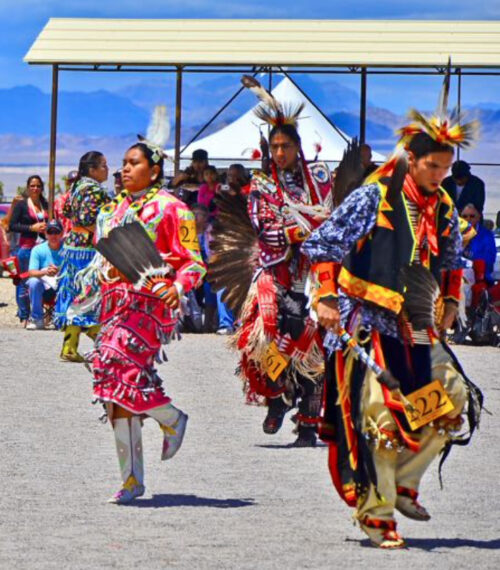Nevada was settled in the interconnected lands of four main indigenous groups - Washoe, Northern Paiute, Southern Paiute and Western Shoshone – each of which continue to be fundamental to understanding the region’s present and future. Las Vegas stands on Nuwuvi (or Nuwu) lands, part of the Southern Paiute people who share common roots with the Uto-Aztecan or Uto-Nahualt indigenous groups extending into Mexico.
Among other tribes, the Reno/Sparks Indian Colony, Pyramid Lake Paiute, Walker River Paiute, McDermott Paiute, Decker Pass/ Duck Valley Shohone have all been part of a concerted struggle with the US Bureau of Land Management (BLM) regarding the creation of a lithium mine at the Oregon-Nevada border’s Thacker Pass.
Clark County, home to Las Vegas, has seen the largest period of population growth since its settlement in the last decades, in the 1990s seeing 86% growth regionally, and later 42% (2000-2009) and slowing to 12% (2010-2019). Yet population is steadily increasing as residents flock for relatively cheaper housing from other regions, and is expected to reach from 2.3 million in 2021 to 5 million in 2055. This growth is significant because it has cemented the populations’ status as majority-Black, indigenous and people of color (BIPOC) as early as 2010 and only set to steadily expand.
Many of the changes fueling this growth are fundamentally tied to the questions that define the lives of working class and poor residents – including drawing residents seeking promised affordable housing and the desire for a place to build roots. Many came from places hit by globalized, race-to-the-bottom deindustrialization and the wipeout of middle-class pathways for communities of color. At the same time, much of the growth in jobs that attracted many BIPOC residents is tied to the expansion of the city as a destination in a global tourist landscape, and the ways the city was sold to the world as a (racialized, gendered and colonized) paradise for escape. And in these last decades, the affordability promised in housing purchases and rents has also been wiped out by the foreclosure crises and waves of dispossession.
